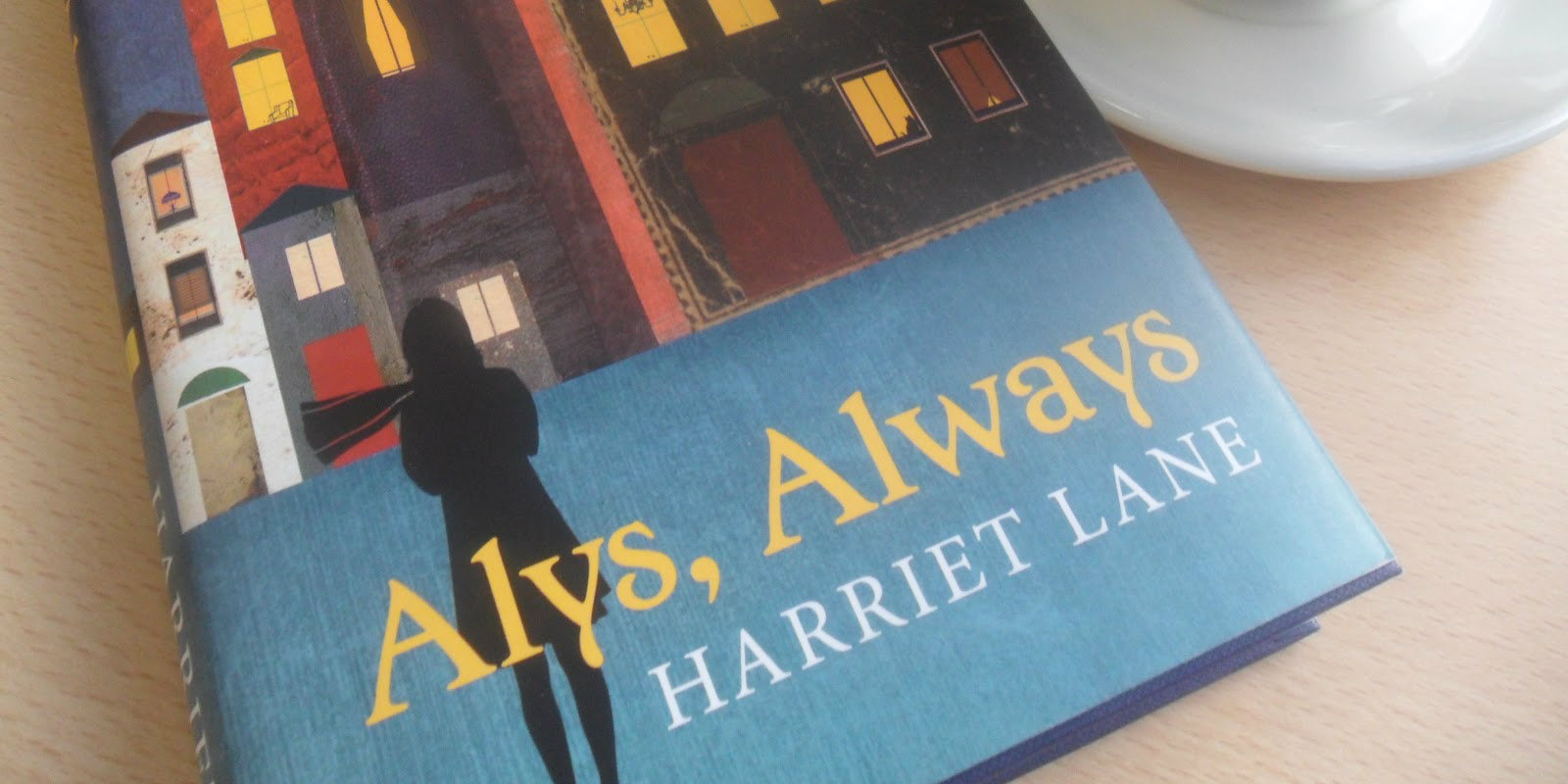Blogs
All about Alys

All about Alys, Review of “Alys, Always” by Harriet Lane
You know when you start a book and you know instantly you’re going to love it? You wonder why you’ve never heard of it or the author. This was the feeling I had when I read the very first few lines. I just loved the style of writing: the first person, present tense give it an immediacy, but more importantly, the writer has that all-important asset in any writer a “voice”. Right from the start we see and hear everything that the heroine sees and hears, we can think her thoughts, we know her, yet there are things we don’t know, things we need to discover for ourselves. That’s what makes us read on.
The descriptions are wonderful and really capture the moment:
“Sleet splatters the windscreen…..my headlights rake the drizzle”
“It may be late morning but in here, partly because of the black lacquer and the glow of the little shaded lamps, it feels like evening.”
“I listen to the familiar sounds of sash windows being and the burble of radio phone-ins, the lunatic fanfare of Saturday cartoons.”
There are, however, occasions when the descriptions were overdone, particularly in the section where the heroine is at the holiday home in the country. Here they were so overblown, so more-than-perfect that it became almost tedious to the reader.
The rest of the book has tremendous pace. It’s edgy, exciting. We can’t wait to see what happens. It poses so many questions, and the more we learn of the main protagonist, the more we still want to know. We’re never exactly sure what’s going on, what she’s doing and why. It’s compelling. There are echoes of “Rebecca”, except that we know the name of the first wife, and this is a study of envy not jealousy. envy.
The observations are brilliant. The heroine’s work life, the office gossip and her nightmare colleagues are all beautifully drawn, but I particularly enjoyed the description of her parents’ busy but pointless retired lives:
“The meals at my parents’ house always come thick and fast, and in between there’s a constant opportunity to supplement. The food rolls out in marshalled surges, like Bomber Command. There is no let up. Someone is forever passing round foil-wrapped chocolates, cheese straws, yellow slices of Madeira, salted luxury nuts, little fruited scones anointed with scarlet jam, cubes of mild Cheddar speared with cocktail sticks, decorative tins containing layers of scalloped Viennese biscuits. It’s a relentless battery of snacks. The food and the constant preparation and clearing away of it get in the way of other things we might profitably be doing, things normal families seem to do when they convene: going for walks, playing Scrabble, talking about subjects other than road works or the weather we’ve been having lately.”
This gives us another insight into Frances’ motives. Clearly she wants a better future for herself than this.
At heart it’s a book about power in relationships, both at work and at home: control, the lack of power and how to get it back.
I won’t give away any more of the story. I would simply say: read it.
It’s a brilliant book and one that will stay with you long after you’ve finished it.
Bethany Askew is the author of eight novels: The Time Before, The World Within, Out of Step, Counting the Days, Poppy's Seed, Three Extraordinary Years The Two Saras and I Know You, Don't I? She has also written a short story, The Night of the Storm, and she writes poetry. Two more women’s fiction books have been accepted for publication in 2020 and 2021 respectively and she is currently working on a new novel. In her spare time she enjoys reading, music, theatre, walking, Pilates, dancing and voluntary work. Bethany is married and lives in Somerset.
Recent Comments
- Bethany Askew on About the Author
- Louise Tyrrell on About the Author
- Bethany Askew on About the Author
- Yola Munro on About the Author
- Andrea crosland on About the Author
-
Latest Posts
Meta
Bethany Askew
Bethany Askew is the author of eight novels:
The Time Before, The World Within, Out of Step, Counting the Days, Poppy’s Seed, Three Extraordinary Years,The Two Saras and I know you, Don’t I?
She has also written a short story, The Night of the Storm, and she writes poetry.
Two more women’s fiction books have been accepted for publication in 2020 and 2021 respectively and she is currently working on a new novel.
In her spare time she enjoys reading, music, theatre, walking, Pilates, dancing and voluntary work.
Bethany is married and lives in Somerset.
-
My Twitter Feed
-
Today from Bethany Askew Novelist : Book Review: The Woman in the White Kimono by Ana Johns https://t.co/2J6L2spX7t... 4 years ago
-
Copyright - Bethany Askew 2009 - 2016 Follow @AskewBethany
